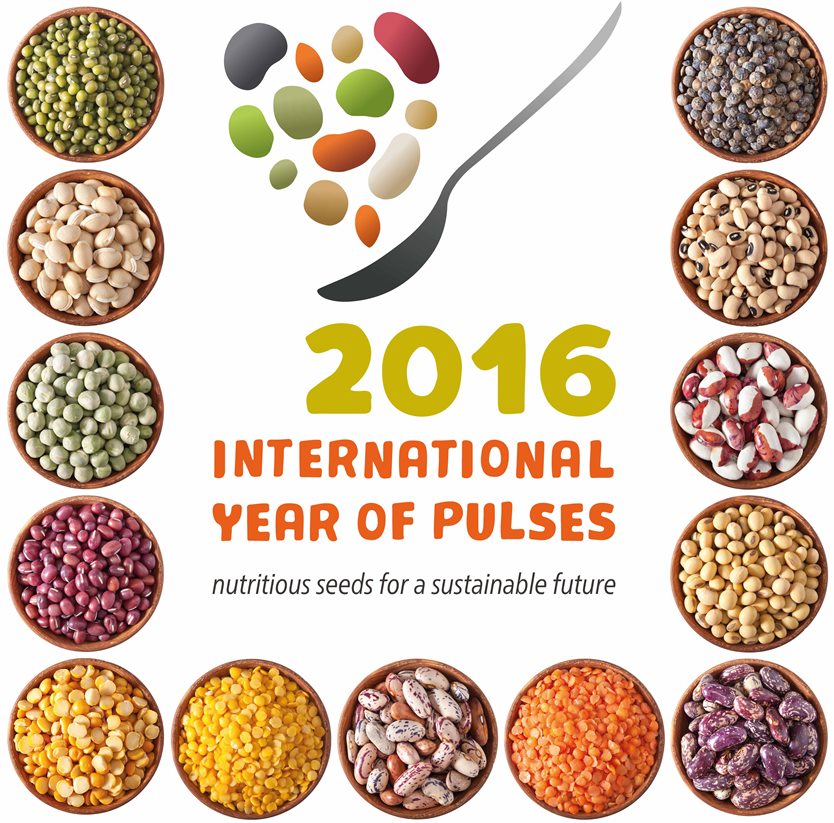Importance of Pulses in Human Nutrition
Pulses are an important part of our diet. Basically, they are the edible seeds of the plants of legume family. Due to their higher protein content, pulses are a vital part of the global menu.
Pulses literally mean soup or potage. They are healthy, nutritious and easy to cook with.
 According to United Nations Food and Agriculture organization (FAO), there are a total of 11 types of pulses: dry beans, dry broad beans, dry peas, chick peas, cow peas, pigeon peas, lentils, bambara beans, vetches, lupins and pulses nes.
According to United Nations Food and Agriculture organization (FAO), there are a total of 11 types of pulses: dry beans, dry broad beans, dry peas, chick peas, cow peas, pigeon peas, lentils, bambara beans, vetches, lupins and pulses nes.
Pulses are a fundamental source of nutrition in most of the developing countries because they are low fat and high fiber source of protein. Being an important part of our food basket, pulses contribute 10% to the daily protein intake and 5% in daily energy intake.
Lentils can be prepared and cooked in different ways. Some needs to be soaked and some can be cooked without soaking. They can be cooked and mashed as hummus, can be used in soups, curries, casseroles and salads. They can be transformed and grounded into a flour or can be split into a dal.
A few types of baked beans can also be canned and a few can be fermented and mashed to convert into idlis and dosas.
Lentils can be used as dry snacks; they can be deep fried or can be eaten fresh as a vegetable. They can be roasted, puffed, baked or fermented. Faba beans are sold in the frozen or pod form.
Pulses play an important role in the prevention illness such as cancer, diabetes and heart disease. Being the primary source of both soluble and insoluble fibers, pulses help to feel with digestion and regularity.
The low glycemic index and high fiber content of the pulses makes them an important source of human nutrition. Pulses play an important role for food security in particularly low income countries. They contain a significant amount of nutrients like calcium, iron and lysine.
Pulses are also a good source of vitamins and minerals too. The key minerals of the pulses are: iron, potassium, magnesium and zinc.
As per the estimate of World Health Organisation up to 80% of heart diseases, strokes and type ll cases can be prevented only by eliminating a few risky factors such as unhealthy diet. Incorporation this essential component, pulses in your daily diet and promoting better eating habits is also helpful in dealing with different types of cancers.
The nutritional component of pulses also helps in fighting against non-communicable diseases. The pulse protein is an alternative to animal protein. It helps to limit the intake of saturated fats by increasing the intake of fibers. Pulses contain higher content of amino-acids and foliate and that is why it is very important to retain pulses in your daily diet.
Much to your surprise pulses contain twice the amount of protein found in whole grain cereals like wheat, barley, oats and rice.
Legumes are attached to long living cultures such as Japanese, Swedes and Meditarrean people.
Comments
(0 Comments)